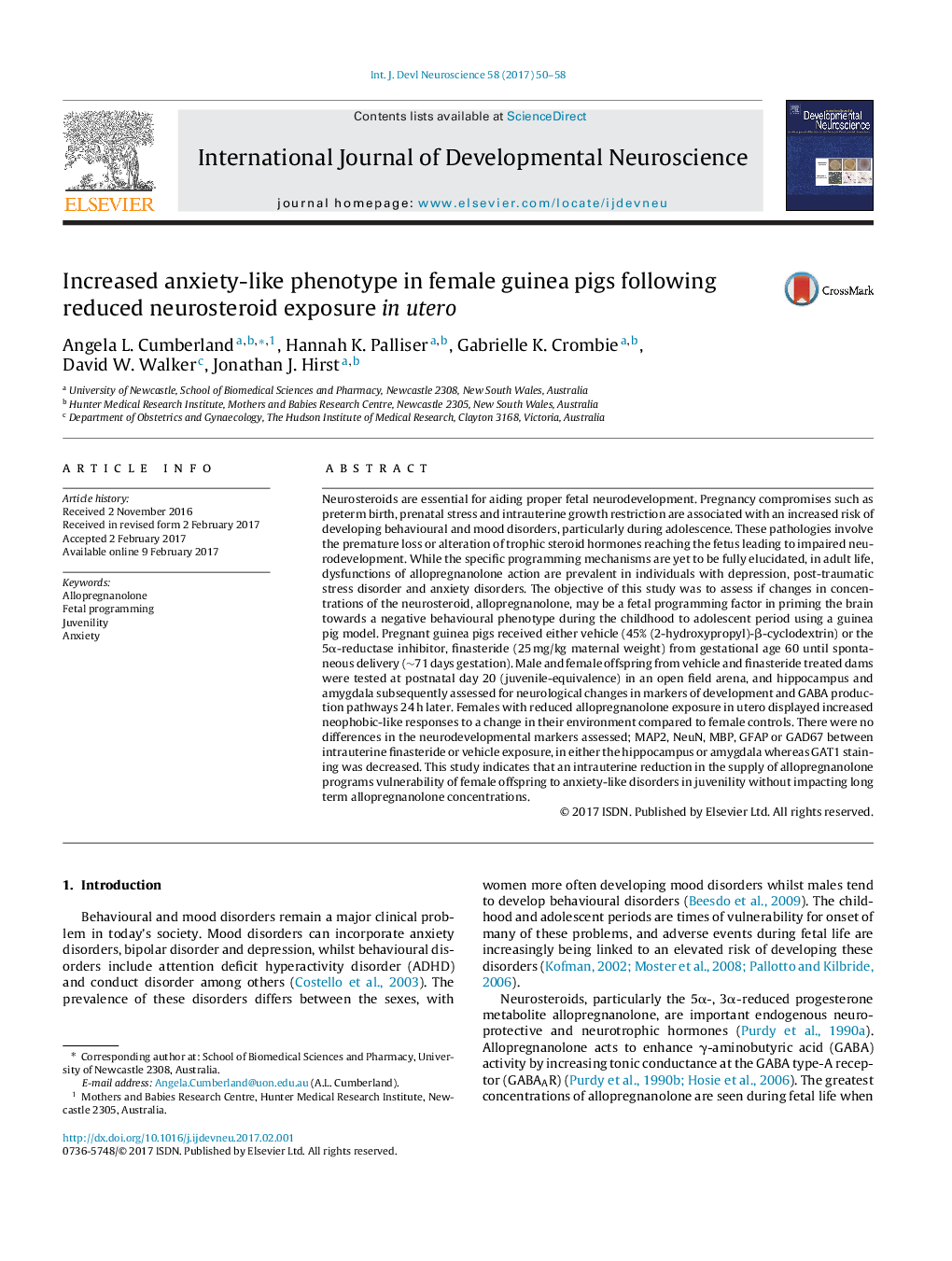| Article ID | Journal | Published Year | Pages | File Type |
|---|---|---|---|---|
| 5585793 | International Journal of Developmental Neuroscience | 2017 | 9 Pages |
Abstract
Neurosteroids are essential for aiding proper fetal neurodevelopment. Pregnancy compromises such as preterm birth, prenatal stress and intrauterine growth restriction are associated with an increased risk of developing behavioural and mood disorders, particularly during adolescence. These pathologies involve the premature loss or alteration of trophic steroid hormones reaching the fetus leading to impaired neurodevelopment. While the specific programming mechanisms are yet to be fully elucidated, in adult life, dysfunctions of allopregnanolone action are prevalent in individuals with depression, post-traumatic stress disorder and anxiety disorders. The objective of this study was to assess if changes in concentrations of the neurosteroid, allopregnanolone, may be a fetal programming factor in priming the brain towards a negative behavioural phenotype during the childhood to adolescent period using a guinea pig model. Pregnant guinea pigs received either vehicle (45% (2-hydroxypropyl)-β-cyclodextrin) or the 5α-reductase inhibitor, finasteride (25 mg/kg maternal weight) from gestational age 60 until spontaneous delivery (â¼71 days gestation). Male and female offspring from vehicle and finasteride treated dams were tested at postnatal day 20 (juvenile-equivalence) in an open field arena, and hippocampus and amygdala subsequently assessed for neurological changes in markers of development and GABA production pathways 24 h later. Females with reduced allopregnanolone exposure in utero displayed increased neophobic-like responses to a change in their environment compared to female controls. There were no differences in the neurodevelopmental markers assessed; MAP2, NeuN, MBP, GFAP or GAD67 between intrauterine finasteride or vehicle exposure, in either the hippocampus or amygdala whereas GAT1 staining was decreased. This study indicates that an intrauterine reduction in the supply of allopregnanolone programs vulnerability of female offspring to anxiety-like disorders in juvenility without impacting long term allopregnanolone concentrations.
Related Topics
Life Sciences
Biochemistry, Genetics and Molecular Biology
Developmental Biology
Authors
Angela L. Cumberland, Hannah K. Palliser, Gabrielle K. Crombie, David W. Walker, Jonathan J. Hirst,
